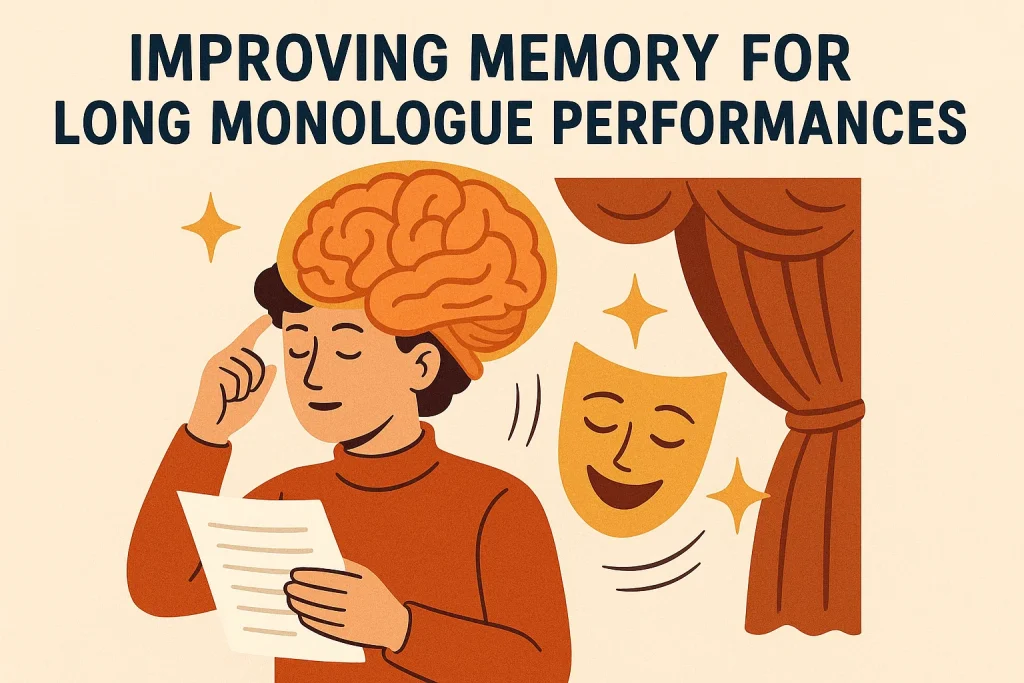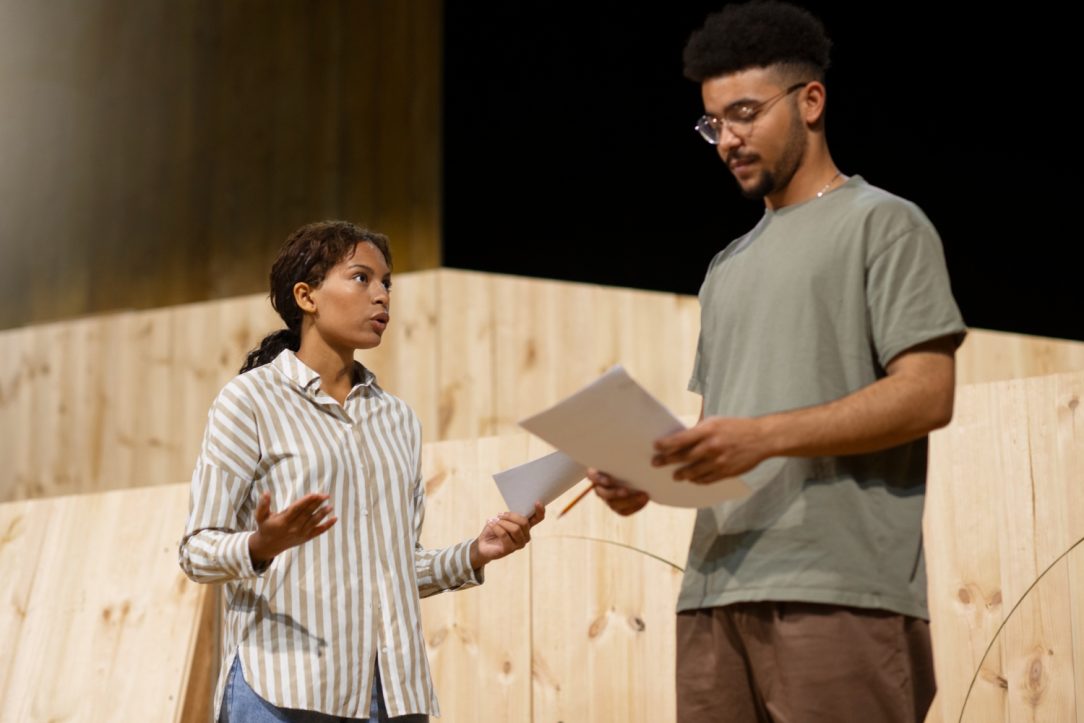
Improving Memory for Long Monologue Performances
Improving memory for long monologue performances is essential for any actor who wants to deliver a compelling and confident performance. Long monologues can be some of the toughest parts of acting, requiring not just memorization of lines, but also emotional connection, sustained energy, and precise timing. Forgetting even a single sentence can disrupt your rhythm and make it harder to stay in character. Mastering memory skills allows actors to fully immerse themselves in a scene and deliver authentic performances.
Whether you’re a beginner or have some stage experience, admitting that memorization is difficult is normal. But with the right strategies, improving memory for long monologue performances becomes manageable. Strengthening your memory doesn’t mean cramming or sacrificing sleep—it’s about creating smart habits, using practical techniques, and giving your brain the right tools.
Techniques for Improve Memory for Long Monologue Performances
Memorization isn’t about staring at a script for hours. You need active tools to lock in what matters. Techniques like mnemonics, visualization, and monologue mapping are particularly effective for improving memory for long monologue performances.
- Mnemonics: Fun and simple brain tricks can help trigger recall. For example, take the first letter of each word in a tricky line and create a made-up sentence to jog your memory.
- Visualization: Imagine the scenes and emotions behind each line. Linking abstract words to mental images creates a concrete memory pathway.
- Monologue Mapping: Draw symbols, doodles, or pathways next to each beat of your script to visually track your performance.
Repetition and Practice for Long Monologue Mastery
Repetition remains one of the most effective ways to memorize, but structure makes it more efficient:
- Break the monologue into 2–3 line chunks.
- Practice each chunk aloud three times without looking.
- Add the next chunk, and repeat both together.
- Continue section by section until the entire monologue is complete.
- Repeat the full monologue once in the morning and once before bed to reinforce memory.
Actors can also practice while moving—pacing, gesturing, or sitting and standing between lines—because physical movement strengthens recall. Recording yourself reciting the monologue and listening during routine activities, like walking or chores, also improves retention.
For more rehearsal tips, check StageMilk.
Healthy Lifestyle Choices That Support Memory
Memory performance depends on the body as much as the brain. Tired or distracted actors struggle to retain long passages.
- Sleep: Ensure consistent, full-night sleep to consolidate memory.
- Nutrition: Balanced meals with protein, whole grains, and healthy fats keep your brain alert. Avoid heavy foods that induce drowsiness.
- Physical Activity: Light walks, stretching, or short jogs improve oxygen flow to the brain and reinforce memory.
- Mental Breaks: Step away for a few minutes if stuck, refresh your mind with fresh air, or switch tasks briefly.
Using Technology to Reinforce Memory
Modern tools complement traditional methods for improving memory for long monologue performances:
- Voice Recording Apps: Record and replay monologues to reinforce rhythm and phrasing.
- Memorization Apps: Apps like Rehearsal Pro help hide lines, test recall, and strengthen memory actively.
- Video Recording: Filming yourself performing highlights which beats need work and builds confidence.
- Reminders and Calendars: Short, frequent review sessions maintain consistency without overwhelming your schedule.
Long-Term Success with Memory in Acting Programs
Improving memory for long monologue performances is about building a system that works with how you think and live. It isn’t about perfection. It’s about making your brain, body, and tools work together so you can focus on your character’s truth without being thrown off by a forgotten line.
Once memorization becomes a habit, you’ll start to feel more grounded in rehearsals and performances. Instead of worrying about what comes next, you’ll be free to listen, react, and explore the scene with your full focus. Whether you use note cards, pacing, drawing maps, or talking into a microphone, the goal stays the same. Make the material yours so it comes out naturally.
Actors in training have a lot on their plates, from voice work to movement and theory. Solid memory techniques give you one less thing to stress about. They also help you grow as a performer, making your scenes stronger and your work more layered. These tools aren’t just for one monologue. They’ll carry you through every script, audition, and role that comes your way.
Unlock your potential and refine your skills with our comprehensive training. Whether you’re aiming to boost your confidence or build a strong foundation, the Los Angeles Acting Conservatory provides a supportive environment for growth. Explore our holistic approach to acting programs and take the first step toward becoming a more dynamic performer.

